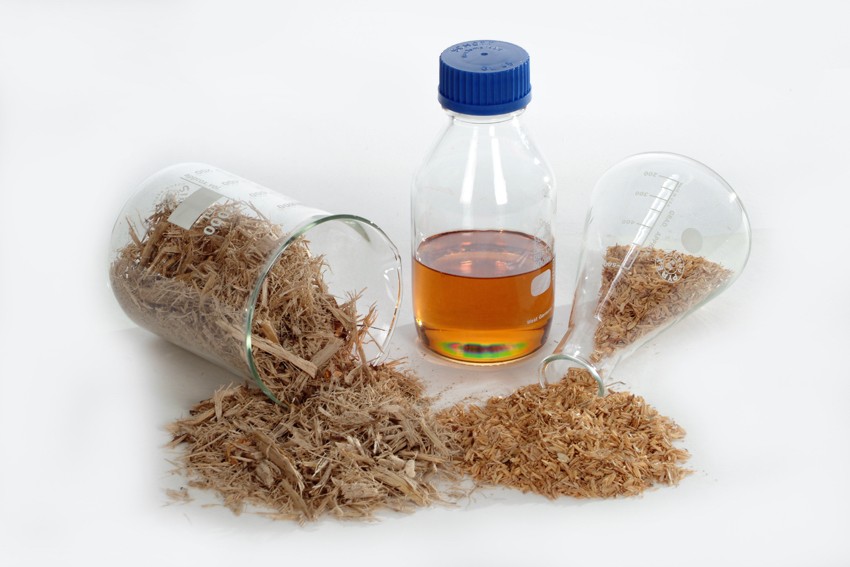The furfural industry refers to the production and commercialization of furfural, a chemical compound derived from various agricultural wastes such as corncobs, oat hulls, and sawdust. Furfural is produced by acid hydrolysis of pentosans, which are complex carbohydrates found in lignocellulosic biomass. The furfural market size is estimated to grow up to USD 700 million by 2024, at a CAGR of 4.9% during the forecast period.
Furfural is a versatile compound that has numerous applications in various industries. It is primarily used as a solvent in the refining of lubricating oils and as a raw material for the production of various chemicals such as #furfurylalcohol, which is used in the manufacture of #resins, #adhesives, and #coatings. Furfural is also used as a starting material for the synthesis of pharmaceuticals, agrochemicals, and flavoring agents.
Additionally, furfural has applications in the production of renewable fuels such as biodiesel and as a feedstock for the production of biodegradable plastics. It is also used as a flavoring agent in food products and as a preservative in the tobacco industry.
Download PDF Brochure: https://www.marketsandmarkets.com/pdfdownloadNew.asp?id=101056456
Furfural Market Drivers and Challenges
One of the key drivers of the furfural market is the growing demand for renewable chemicals and fuels due to concerns over climate change and the need to reduce greenhouse gas emissions. Furfural, as a renewable and sustainable compound derived from biomass, is well-positioned to benefit from this trend.
Another driver of the furfural market is the increasing demand for furfural derivatives such as furfuryl alcohol, which has applications in the construction, automotive, and electronics industries. Furfuryl alcohol is also used as a binder in foundry sand, which is used in the manufacturing of metal castings.
The growth of the agricultural industry is also expected to contribute to the furfural market’s expansion as agricultural waste such as corn cobs, wheat bran, and bagasse are potential feedstocks for furfural production.

However, the furfural market also faces challenges such as competition from other renewable chemicals and the availability of cheaper alternatives to furfural derivatives such as phenolic resins. Additionally, the high capital and operational costs of furfural production can also pose a barrier to market growth.
Furfural Market Top Trending Key Players
The key players in the furfural market are Transfuran Chemicals (Belgium), Central Romana Corporation (Dominican Republic), Pennakem (US), Silvateam (Italy), Illovo Sugar (South Africa), Hongye Holding Group Corporation (China), KRBL(India), Lenzing (Austria), Tanin (Slovenia), and Shandong Crownchem Industries (China).
Corncob is the largest raw material segment of the furfural market
Corncob is one of the largest raw material segments of the furfural market. Corncobs are a plentiful and low-cost source of pentosans, which are the complex carbohydrates that are hydrolyzed to produce furfural. Other potential raw materials for furfural production include oat hulls, rice husks, and bagasse, among others.
Inquire Before Buying: https://www.marketsandmarkets.com/Enquiry_Before_BuyingNew.asp?id=101056456
The use of corncobs as a feedstock for furfural production has several advantages. Firstly, corncobs are widely available as a byproduct of the corn industry, making them a sustainable and renewable resource. Secondly, corncobs have a high pentosan content, which makes them a relatively efficient source of furfural. Lastly, the use of corncobs for furfural production can also help reduce waste and provide an additional source of revenue for farmers.
The derivatives application is expected to register the fastest growth
derivatives application segment is expected to register the fastest growth in the furfural market. Furfural derivatives such as furfuryl alcohol, furoic acid, and tetrahydrofurfuryl alcohol have a wide range of applications in various industries, including construction, automotive, and electronics.
Furfuryl alcohol, which is one of the most commonly used furfural derivatives, is used in the production of resins, adhesives, and coatings. It is also used as a solvent in the refining of lubricating oils and as a binder in foundry sand. The growth of these industries is expected to drive the demand for furfuryl alcohol and other furfural derivatives.
Furfural market growth in APAC Region
The APAC region is expected to be one of the fastest-growing markets for furfural due to factors such as the growing demand for renewable chemicals and fuels, increasing industrialization, and the availability of low-cost raw materials for furfural production.
China is one of the largest producers and consumers of furfural in the world, and the country is expected to continue to drive the growth of the furfural market in the APAC region. The Chinese government has implemented policies to promote the development of renewable chemicals and fuels, which is expected to drive the demand for furfural and its derivatives. Other countries in the APAC region, such as India and Japan, are also expected to contribute to the growth of the furfural market.